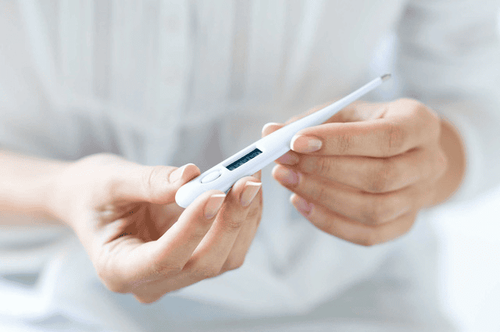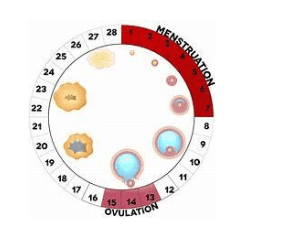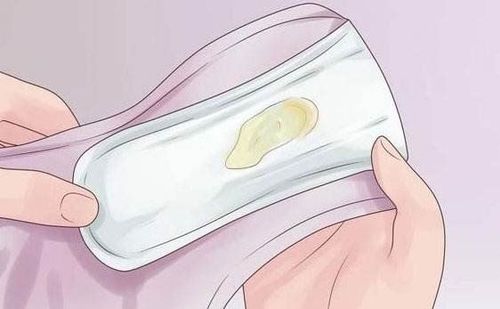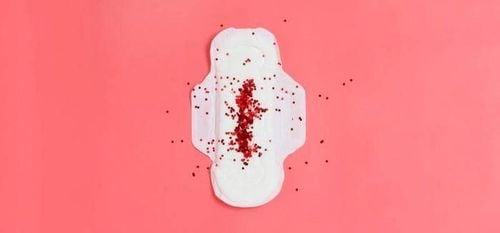This is an automatically translated article.
Premenstrual dysphoric disorder is caused by hormonal fluctuations in the period before menstruation. This discomfort affects between 2 and 5% of women and should subside with perimenopause. For many women with premenstrual dyspnea, the symptoms are sometimes very intense and interfere with daily activities. If medications don't work or are poorly tolerated, the following natural ways may be beneficial, helping to improve overall health, reduce stress, and manage symptoms.1. Practice aromatherapy
Aromatherapy is essentially about breathing air containing essential oils to improve physical and emotional well-being. The role of essential oils has been shown to be able to reduce stress, improve sleep, and relieve pain.Some of the best essential oils for PMS symptoms are:
Chamomile to promote relaxation and sleep Sage to relieve menstrual cramps and anxiety Lavender to make Relieve stress, smooth muscle spasms Users can add diluted essential oils to a warm bath or inhale the scent directly by placing a few drops on an absorbent cotton pad. To apply to the skin, add 15 drops of essential oil to a little carrier oil - common transdermal carrier oils like almond oil, coconut oil. Massage the diluted oil into the area of concern.
Since undiluted essential oils can irritate your skin, and even if diluted, it's always best to test before using by adding a few drops of the diluted essential oil to your wrist. or inner elbow. Leave this on for 24 hours, do not apply lotion or add any other products to this area. If no irritation occurs, the user can safely apply the tested essential oil elsewhere.
2. Practice meditation
Research shows that meditation can reduce anxiety, depression, and pain — all common symptoms of PMS. Meditation requires the practitioner to fully focus on the present moment and also focus on one's own breath. This can help relax the mind and eliminate unpleasant symptoms caused by hormonal changes.To get started with meditation, try guided meditations from community organizations. At the same time, practitioners can also access hundreds of guided meditation videos on YouTube or can download the meditation app to their smart mobile device for easy practice anytime, anywhere.
3. Take a warm bath
Taking a warm bath is very good, can both help soothe menstrual cramps, reduce anxiety and help the body relax for a better night's sleep.Try these tips to get the most out of the benefits of showering for unpleasant PMS symptoms
Choose a time when showering won't be interrupted, such as after the kids leave sleep
Light a lavender or rose scented candle before entering the bath
Play soothing background music, such as jazz or classical piano
Add essential oils to the water. Water will dilute the oil, so there is no risk of skin irritation
Maintain a relaxed state after bathing by wearing a clean robe and slippers. Prepare a hot water bottle and place it on your abdomen or lower back to relieve menstrual pain.

Tình trạng khó thở tiền kinh nguyệt có thể được cải thiện khi bạn tắm nước ấm
4. Change of menstrual products
While menstrual products are a necessary element of the cycle, they can make PMS symptoms worse. For example, tampons can cause some women to have more cramps. If you have sensitive skin, some ingredients in the pad can irritate the skin of the intimate area.There are no scientific studies on the mechanism by which menstrual products affect PMS. Still, there's quite a bit of evidence that changing them can help. Trying all-organic pads or tampons or menstrual cups can make a woman more comfortable these days.
5. Make the right diet
Eating the right foods is important for managing PMS. While it's not clear how diet affects this phase, eating healthy can help reduce uncomfortable symptoms caused by changes in sex hormone levels.For example, foods that are too salty can increase feelings of bloating. Foods high in sugar can cause sharp fluctuations in blood sugar, which can worsen fatigue and mood swings.
Accordingly, a woman should:
Divide food into small meals scattered throughout the day, avoid overeating to prevent bloating and abdominal pain. Eat lots of fruits and vegetables. Choose sources of complex carbs like whole grains instead of processed carbs. Avoid salt and salty snacks. Avoid caffeine. Avoid alcohol. Eat foods high in protein to help increase tryptophan levels.
6. Supplements with functional foods
Research has shown that getting the nutrients it needs in the diet helps fight premenstrual dyspnea. Therefore, the best way to get the nutrients, minerals and vitamins you need is to eat whole, raw foods. At the same time, supplementing with functional foods will be an option if you are not getting enough from your food.What supplements to choose to deal with PMS:
Calcium. 1,200 milligrams (mg) of calcium per day may help alleviate symptoms of physical and emotional abnormalities. Magnesium. 360 mg may help relieve chest pain and bloating. Vitamin E. 400 international units (IU) per day can help reduce the amount of prostaglandins in the body. This hormone is known to cause pain. Vitamin B-6. 50 to 100 mg per day may help alleviate fatigue, irritability, and insomnia.

Khó thở tiền kinh nguyệt có thể được cải thiện nếu cơ thể được cung cấp đủ dinh dưỡng
7. Consider herbal supplements
While there is little scientific research on the effectiveness of herbal remedies for PMS, some women claim to see clear benefits from using them. Some herbs to try are:Evening primrose oil. This is the most studied herb for PMS. However, studies are still inconclusive, but early results suggest that there is some benefit to taking 500 to 1,000 mg per day. European Virgin (Chasteberry). This is a plant that can reduce prolactin production, so it helps relieve breast pain. St. John's wort. Dubbed as a natural antidepressant because it can help reduce anxiety, depression and irritability. This herb can also ease some of the physical symptoms of PMS. However, it is necessary to consult a doctor before taking it to avoid dangerous side effects or drug interactions, if any. Gingko. According to one study, taking 40 mg of gingko three times daily can better relieve premenstrual dysphoric disorder than a placebo. The proposed mechanism is that ginkgo reduces prostaglandins in the body and increases the release of neurotransmitters in the brain.
8. Engage in yoga or exercise
Yoga is an ancient practice that relieves pain and promotes a state of relaxation. Furthermore, therapeutic yoga can improve menstrual cramps and overall health. It also helps women become more aware of their physical and emotional suffering, which in turn can help them cope better.In addition, women can participate in other forms of exercise such as walking, swimming, cycling...
If possible, exercise outdoors to enjoy the freshness from nature and get a boost of mood-boosting vitamin D as well as increase calcium synthesis for strong bones.
9. Refer to acupuncture therapy
The principle of acupuncture is to use thin needles that are inserted into specific points in the skin to help relieve pain and relieve tension. According to the available evidence, acupuncture shows promise in the treatment of PMS symptoms.10. Get enough sleep
It is difficult for people to function effectively without getting enough sleep. If you're suffering from premenstrual dysphoric disorder and aren't getting enough sleep, it's almost impossible to get over it easily. Chronic sleep loss can lead to depression and anxiety as well as increased irritability and fatigue.Therefore, in the days of feeling short of breath before menstruation, a woman should:
Maintain the habit of going to bed at the same time every day. Don't take long naps during the day. Do not drink caffeinated beverages and stimulants in general before going to bed. Only use the bedroom for sleeping. Avoid television and computer screens before bed. Keep the bedroom at a cool, comfortable, and clean temperature. Relax your body before going to bed like listening to music or taking a warm bath. In summary, premenstrual dyspnea or premenstrual syndrome in general is a nuisance for women, causing irritability, anxiety, and fatigue. While there are medications available to treat this disorder on the market, the natural treatments listed above that are found to be effective and safe should be tried first to reduce stress, promote relaxation, and massage. ease the unpleasant symptoms of these days.
If you have a need for consultation and examination at Vinmec Hospitals under the national health system, please book an appointment on the website (vinmec.com) for service.
Please dial HOTLINE for more information or register for an appointment HERE. Download MyVinmec app to make appointments faster and to manage your bookings easily.
Reference source: healthline.com












